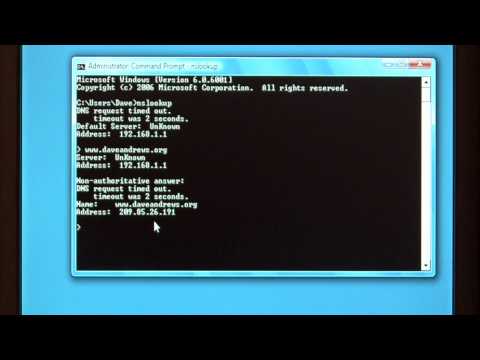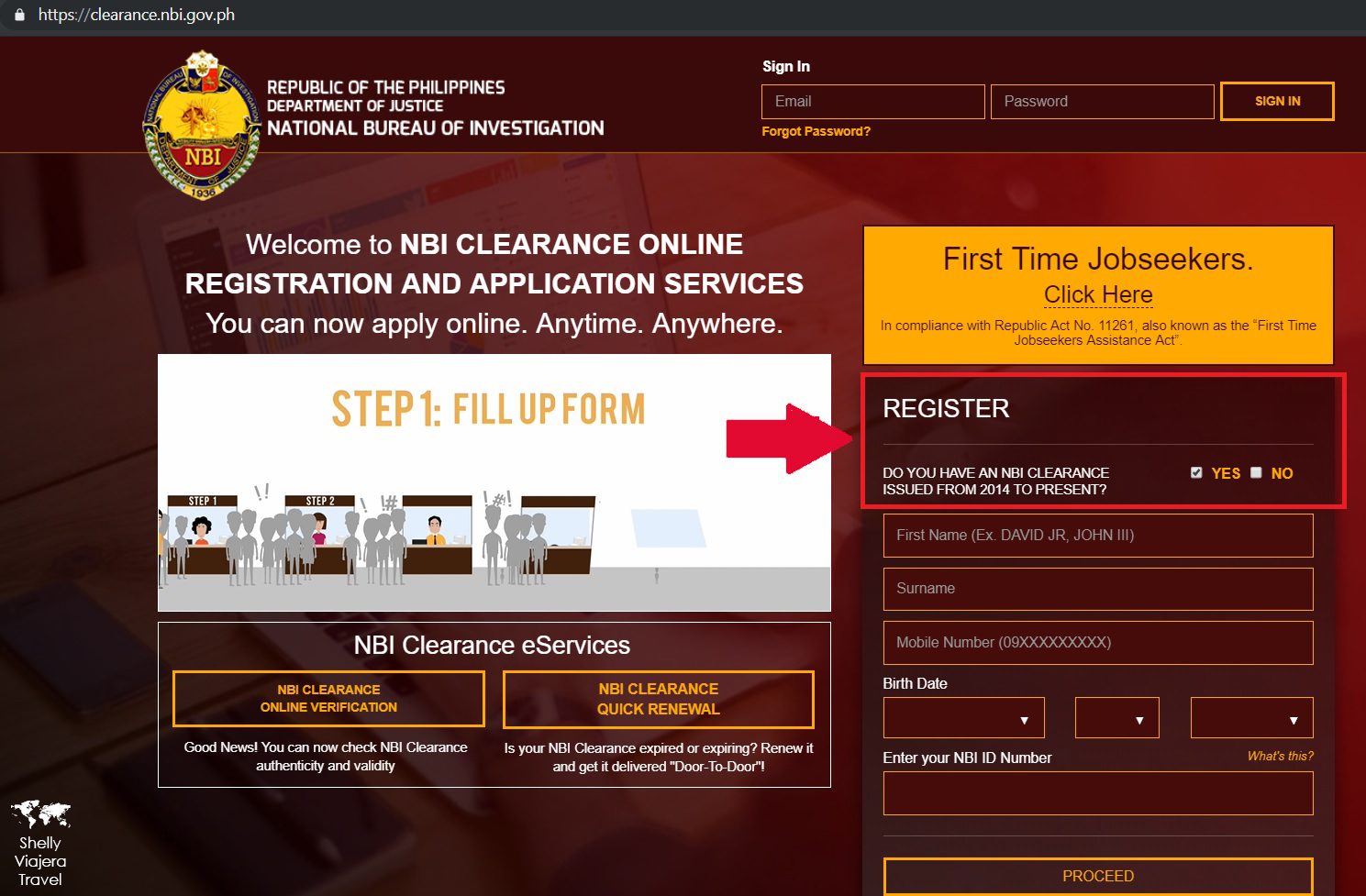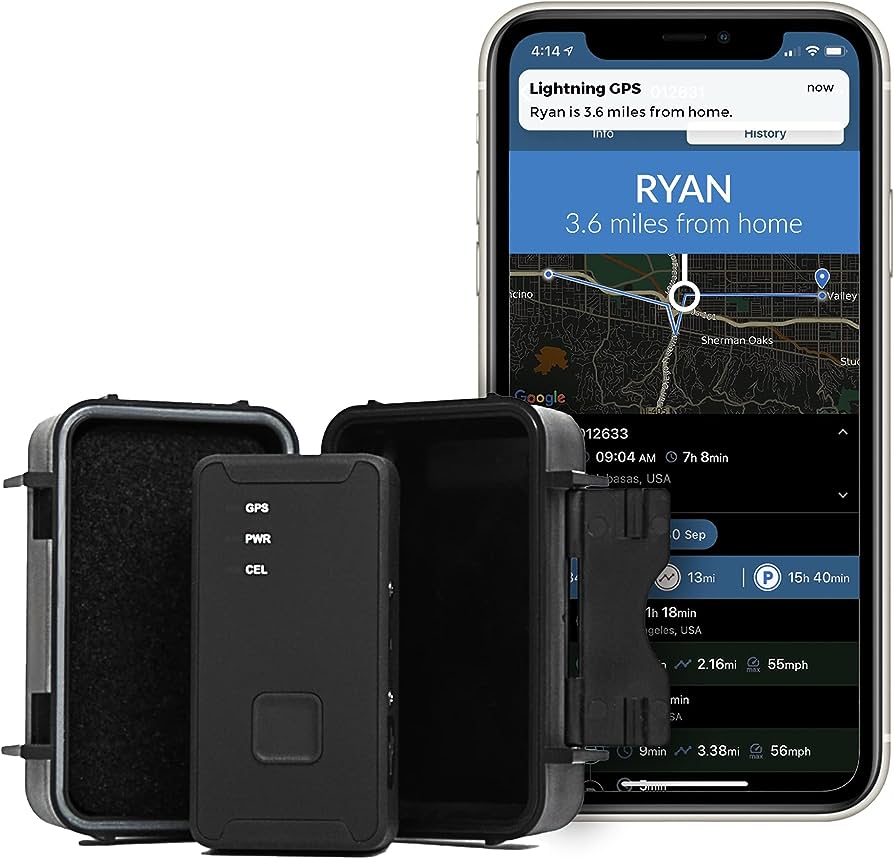To track the IP address of someone, you can use IP tracking tools or websites that provide this service, offering details about the location and internet service provider of the user. Such tools and websites are easily accessible and provide the necessary information within seconds.
Additionally, it is important to acknowledge that tracking someone’s IP address should always be done in a legal and ethical manner, respecting privacy laws and regulations. Tracking IP addresses can be useful for various reasons, such as ensuring the security of online platforms, investigating cybercrimes, or monitoring network activities.
What Is An Ip Address And How Does It Work?
An IP address is a unique numerical label assigned to each device connected to a computer network. It serves as a digital identifier, allowing data to be sent and received across the internet. Tracking someone’s IP address can provide information about their location and online activities.
Explaining The Concept Of Ip Addresses
An IP address, short for Internet Protocol address, is a unique numerical label assigned to each device connected to a computer network. It serves as the device’s identification, enabling network communication and data transmission between devices. Understanding how IP addresses work is essential in tracking the IP address of someone.
Here’s an overview of the concept:
- IP Address Format: IP addresses consist of a series of numbers separated by periods. Each number can range from 0 to 255. Examples of IP addresses are 192.168.0.1 or 172.16.254.1.
- IPv4 vs. IPv6: There are two versions of IP addresses in use today. IPv4 addresses are the most common, containing four sets of numbers. However, due to the limited number of available IPv4 addresses, the newer IPv6 addresses were introduced, which consist of eight sets of numbers and letters.
- IP Address Types: IP addresses can be categorized into two major types – public and private. Public IP addresses are unique and accessible over the internet, while private IP addresses are used within local networks, like home or office networks.
- Static vs. Dynamic IP addresses: IP addresses can be assigned in two ways. Static IP addresses are manually configured and remain constant, making them ideal for servers or devices that require consistent network access. Dynamic IP addresses are automatically assigned by the network’s DHCP (Dynamic Host Configuration Protocol) server and are subject to change each time a device connects to the network.
- Internet Service Providers (ISPs) and IP addresses: ISPs assign IP addresses to devices connected to their network. When a device connects to the internet, an ISP assigns it an IP address temporarily, allowing it to communicate with other devices and access online resources.
Understanding the fundamentals of IP addresses and their assignment to devices is crucial for tracking someone’s IP address. In the next section, we will delve deeper into how IP addresses are assigned to devices.
Tools And Techniques For Tracking Ip Addresses
Track the IP address of someone using effective tools and techniques for accurate results. Discover the whereabouts and online activities of individuals through reliable methods designed specifically for IP tracking.
Tracking the IP address of someone can be a useful skill for various reasons, such as investigating cybersecurity incidents or monitoring online activity. Fortunately, there are several tools and techniques available for tracing IP addresses. In this section, we will explore the popular methods for tracing IP addresses, introduce IP lookup tools, and discuss geolocation databases and services.
Popular Methods For Tracing Ip Addresses:
There are several commonly used methods for tracing IP addresses. These methods include:
- Packet sniffing: This technique involves intercepting and analyzing network traffic to detect the source IP address. Packet sniffers capture all data packets passing through a network interface, allowing you to inspect the header information and identify the IP address.
- Email header analysis: When tracking an IP address associated with an email, examining the email header can provide valuable information. Email headers contain details about the source IP address and the servers it passed through before reaching the recipient.
- Social media analysis: Social media platforms can also provide insights into the IP addresses of users. By examining the account’s login history or investigating the IP addresses associated with specific posts or messages, you can gather information about a user’s location.
- Website visitor tracking: Website owners can track the IP addresses of visitors using analytics tools. By analyzing the website’s logs or utilizing tracking codes, you can gain insights into the geographic location of users accessing your site.
Introduction To Ip Lookup Tools:
IP lookup tools provide a straightforward and efficient way to track IP addresses. These tools leverage public databases and APIs to provide information about the location, ISP (Internet Service Provider), and other details associated with an IP address. Here are some key points about IP lookup tools:
- Database queries: IP lookup tools usually query extensive databases containing information about IP addresses. These databases are regularly updated and provide accurate results for geolocation and network-related information.
- Reverse IP lookup: Reverse IP lookup is a common feature in IP lookup tools. It allows you to determine the domain names hosted on a particular IP address. This can be useful for identifying associated websites or potential malicious activity.
- API integration: Many IP lookup tools offer APIs that developers can integrate into their own applications or scripts. This allows for automated IP address tracking and retrieval of relevant information on demand.
Exploring Geolocation Databases And Services:
Geolocation databases and services play a vital role in tracking IP addresses accurately. These databases associate IP addresses with geographic locations, providing valuable data for various applications. Here are some things to keep in mind when using geolocation databases and services:
- Accuracy and precision: Geolocation services aim to provide accurate positioning information, but it’s important to note that there can be variations in accuracy depending on the method and database used. Results are often approximations rather than pinpoint locations.
- IP-to-location mapping: Geolocation databases map IP addresses to specific coordinates or regions. This mapping allows you to determine the general location of an IP address, such as a city or country.
- Additional data: Geolocation databases and services may offer additional information, such as time zones, region codes, and ISP details. This information can be valuable for understanding the network infrastructure associated with an IP address.
Tracking IP addresses requires the use of various tools and techniques. Packet sniffing, email header analysis, social media analysis, and website visitor tracking are popular methods for tracing IP addresses. IP lookup tools provide a convenient way to retrieve detailed information about an IP address, such as its geolocation and ISP.
Geolocation databases and services further enhance IP tracking capabilities by mapping IP addresses to geographical locations and offering additional data. By leveraging these tools and services, you can effectively track IP addresses and gather valuable insights.
The Legality Of Tracking Someone’S Ip Address
Tracking someone’s IP address is a contentious legality issue. Discovering how to track the IP address of someone can involve various legal barriers and considerations. Understanding the complexities surrounding this topic is crucial before engaging in any form of IP tracking.
Discussing The Legal Framework Around Ip Address Tracking
Tracking someone’s IP address is a complex and controversial topic, raising questions about privacy and legality. In this section, we will explore the legal framework surrounding IP address tracking, including examples of relevant legal cases. Let’s dive in:
- The concept of IP address tracking:
- IP address tracking involves identifying the numerical label assigned to a device connected to a computer network.
- It can reveal information about the approximate location and internet service provider (ISP) of the device.
- Laws and regulations governing IP address tracking:
- The legality of IP address tracking varies depending on the jurisdiction and purpose.
- National laws, such as the General Data Protection Regulation (GDPR) in the European Union, impose restrictions on the collection and processing of personally identifiable information.
- Internet Service Providers’ (ISPs) Terms of Service agreements often provide guidelines on IP address tracking.
- Law enforcement agencies and IP tracking:
- In criminal investigations, law enforcement agencies may seek access to IP address data.
- Legal procedures, such as court orders or search warrants, are generally required to obtain this information.
- Governments enforce specific laws governing the threshold for disclosing or accessing IP address data.
Examples Of Legal Cases Involving Ip Tracking
Several legal cases have shaped the boundaries and guidelines surrounding IP address tracking. Let’s explore some notable examples:
- MGM Resorts International v. Anonymous Online Defendants:
- In this case, MGM Resorts International sued anonymous defendants for unauthorized sharing of copyrighted content.
- The court granted MGM Resorts permission to subpoena ISPs to obtain the IP addresses of the defendants.
- This case highlights how IP address tracking can be used to identify individuals engaged in illegal activities online.
- Google Inc. V. United States:
- In Google’s legal battle with the United States government, the court ordered Google to provide user search records associated with IP addresses.
- This case demonstrates how IP address data can be utilized by third parties, including governments, for various purposes.
- Sony BMG Music Entertainment v. Tenenbaum:
- This case involved a file-sharing lawsuit against a college student accused of illegal downloading.
- IP address tracking played a crucial role in identifying the alleged infringing activity.
- The court ruled in favor of Sony BMG Music Entertainment, emphasizing the significance of IP evidence in copyright infringement cases.
The legality of tracking someone’s IP address involves various legal considerations and depends on the specific circumstances and jurisdiction. Several legal cases have provided insights into the use of IP address tracking in different contexts. It is essential to understand the laws and regulations governing IP tracking and ensure compliance with privacy rights.
Protecting Privacy: Ethics In Ip Address Tracking
Discover the vital importance of protecting privacy through ethical IP address tracking methods. Gain insight on how to effectively track the IP address of someone while maintaining the highest ethical standards. Experience the power of safeguarding private information in today’s digital age.
Exploring The Ethical Implications Of Ip Address Tracking
In the digital age, the ability to track IP addresses has become a common practice for various purposes. However, it raises important ethical considerations regarding individual privacy. Let’s delve into the implications of IP address tracking and how to strike the delicate balance between privacy concerns and legitimate reasons for tracking.
The Importance Of Privacy:
- Preserving online anonymity: Individuals have the right to remain anonymous while browsing the internet without the fear of being constantly monitored.
- Safeguarding personal information: Privacy ensures that one’s personal data, such as browsing history or location, remains protected from being exploited or misused.
- Preventing intrusive surveillance: Unregulated IP address tracking can lead to invasive surveillance, eroding personal freedoms and stifling online expression.
Legitimate Reasons For Ip Address Tracking:
- Enhancing cybersecurity: Monitoring IP addresses aids in identifying potential security threats or malicious activities, allowing prompt action to be taken.
- Detecting fraudulent behavior: Tracking IP addresses can help uncover instances of online fraud, preventing financial losses and protecting innocent individuals.
- Improving website analytics: Website owners utilize IP address tracking to gain insights into their visitors’ demographics, behavior, and preferences, enhancing user experience and personalization.
Striking A Balance:
- Implementing transparency: Organizations engaged in IP address tracking should clearly communicate their tracking practices, ensuring users are aware of the purpose and extent of data collection.
- Obtaining informed consent: Prior consent should be obtained from users before tracking their IP addresses, providing individuals with the choice to opt in or out.
- Anonymizing collected data: To protect privacy, organizations can anonymize IP address data by removing personally identifiable information, maintaining a balance between data analysis and individual privacy.
- Minimizing data retention: Limiting the duration for which IP address data is retained helps reduce the chances of long-term privacy risks and potential data breaches.
- Regularly auditing practices: Organizations should regularly review their IP address tracking procedures to ensure compliance with ethical guidelines and evolving privacy regulations.
It is essential to navigate the ethical landscape surrounding IP address tracking with caution and respect for individuals’ privacy. By adopting transparent practices, obtaining consent, and safeguarding personal information, we can strike a balance between legitimate reasons for tracking IP addresses and the protection of privacy rights.
Gathering Information: Initial Steps
Learn how to track the IP address of someone with these initial steps. Discover methods to gather valuable information effectively and accurately. Increase your understanding of IP tracking with these helpful tips.
Identifying The Need To Track An Ip Address
When it comes to tracking the IP address of someone, there are certain situations where it becomes necessary. Whether you suspect someone of online fraudulent activities, want to trace the source of malicious emails, or need to gather evidence for a legal investigation, tracking an IP address can provide crucial information.
By identifying the unique numerical label assigned to a device connected to a computer network, you can pinpoint the location and gain insights into the user’s online activities. This section will walk you through the initial steps of gathering the necessary information to track an IP address effectively.
To initiate the process of tracking an IP address, it is important to collect relevant details for the investigation. This involves gathering specific information and ensuring that you have the necessary tools at your disposal. Follow these initial steps to set yourself up for a successful IP address tracking:
- Clarify your objective: Clearly define the purpose of tracking the IP address. Identify what you hope to achieve and the information you are seeking from the process.
- Obtain the IP address: If you already have an IP address you want to track, move on to the next step. If not, determine how you will obtain it. This can be through an email header, website logs, or contacting relevant service providers.
- Understand the limitations: Be aware that tracking an IP address has its limitations. You can determine the location and internet service provider (ISP), but identifying the individual behind the IP address may require additional legal steps and cooperation from authorities.
- Use online IP lookup tools: Utilize online IP lookup tools to gather initial information about the IP address you are tracking. These tools can provide geographical location, ISP details, and sometimes even assign a risk level to the IP address.
- Maintain legal compliance: It is crucial to ensure that your actions comply with local laws and regulations when tracking an IP address. Consult with legal professionals if necessary to maintain the integrity of your investigation.
By following these initial steps and gathering the necessary information, you will be well-prepared to track an IP address effectively. The next section will delve deeper into the process of tracking an IP address and using various tools and techniques to uncover valuable insights.
Utilizing Ip Lookup Tools
Track the IP address of someone easily with the help of IP lookup tools. These tools provide valuable information about the location and other details of an IP address, allowing you to effectively track and monitor online activities.
When it comes to tracking someone’s IP address, utilizing IP lookup tools can provide valuable information. These tools allow you to gather details about an IP address, such as the geographical location, Internet Service Provider (ISP), and even the organization associated with it.
In this section, we will explore how to research and select reliable IP lookup tools, as well as provide a step-by-step guide on using popular IP lookup websites.
Researching And Selecting Reliable Ip Lookup Tools:
- Consider the credibility and reputation of the IP lookup tool provider. Look for well-established companies or websites that have positive user reviews and ratings.
- Check if the IP lookup tool offers accurate and up-to-date information. Outdated or unreliable data can lead to incorrect conclusions.
- Look for tools that provide comprehensive IP address information, including location, ISP, organization, and other relevant details.
- Ensure that the IP lookup tool respects user privacy and does not misuse or share collected data.
Step-By-Step Guide On Using Popular Ip Lookup Websites:
- Choose a reputable IP lookup website such as IPinfo, IP2Location, or MaxMind.
- Open the selected website in your web browser.
- Locate the search bar or input field on the website’s homepage.
- Enter the IP address you want to track in the search bar.
- Click on the “Search” or “Lookup” button to initiate the IP address lookup process.
- Wait for the website to gather the necessary information related to the IP address.
- Once the lookup is complete, you will be presented with detailed results.
- Analyze the information provided, including the geographical location, ISP, and organization associated with the IP address.
- Some IP lookup websites may provide additional details like IP ownership history and threat intelligence data. Take note of any relevant findings.
- Use the gathered information to gain insights into the IP address’s origin and potentially identify the person or organization behind it.
By following these steps and utilizing reliable IP lookup tools, you can track and gather valuable information about someone’s IP address. Remember to use this information responsibly and ethically.
Analyzing Geolocation Data
Discover how to track someone’s IP address by analyzing geolocation data. Easily identify the location of a user based on their IP address and gain valuable insights for security purposes.
Geolocation data plays a crucial role in tracking the IP address of someone. By analyzing this data, you can gain valuable insights into the location and possible identity of the individual you’re investigating. Understanding how geolocation data works and interpreting it correctly is essential in order to make accurate conclusions.
In this section, we will delve deeper into the concept of geolocation data and explore how to extract valuable information from it.
Understanding Geolocation Data And Its Interpretation
Geolocation data refers to the information associated with an IP address that reveals the geographic location of a device or network. By analyzing this data, you can identify the approximate physical location of the IP user, providing insights into the user’s general whereabouts.
Here are some key points to consider when dealing with geolocation data:
- IP-based geolocation: Geolocation data is typically derived from mapping IP addresses to physical locations. Different databases and technologies are used to accomplish this.
- Accuracy considerations: It’s important to note that geolocation data may not always provide precise location details. Accuracy can vary depending on factors such as the IP database, the type of IP address, and limitations in the geolocation technology used.
- Granularity levels: Geolocation data can offer different levels of granularity, ranging from country-level data to more specific city or even street-level details. The available granularity depends on the precision of the data source.
- Limitations and errors: Geolocation data is not foolproof and can sometimes lead to errors or false assumptions. Factors such as proxy servers, VPNs, or dynamic IP addresses may affect the accuracy of the geolocation data.
Extracting Valuable Information From Ip Address Geolocation
When analyzing geolocation data, there are several pieces of valuable information you can extract from an IP address. Here are some key points to consider:
- Location identification: Geolocation data can help identify the general location of an IP user, such as the city or country they are accessing the internet from.
- ISP identification: Geolocation data can provide insights into the Internet Service Provider (ISP) associated with the IP address, which can be useful in some investigations.
- Time zone detection: With geolocation data, you can determine the time zone of the IP user, helping to establish their local time frame.
- Tracking potential threats: By analyzing geolocation data, you can identify suspicious IP addresses or detect potential threats, such as unauthorized access attempts or fraudulent activities.
By leveraging geolocation data effectively, you can enhance your ability to track the IP address of someone and obtain valuable information about their location and activities. However, it’s crucial to recognize the limitations and potential errors associated with geolocation data, ensuring that you interpret the results with caution.
Remember, geolocation data should be used responsibly and in compliance with applicable laws and regulations.

Credit: www.hotspotshield.com
Practical Examples: Tracking Ip Address In Different Scenarios
Discover practical examples of tracking IP addresses in various scenarios. Learn how to track the IP address of someone effortlessly through this insightful guide. Gain valuable insights and enhance your ability to identify, monitor, and track IP addresses effectively for different purposes.
In this section, we will explore practical examples of how to track IP addresses in various scenarios. From online harassment cases to investigating cybercrime, understanding how to track IP addresses can provide valuable information for identifying the individuals behind these activities.
Tracking Ip Addresses In Online Harassment Cases:
- Bullying on social media platforms: In cases of cyberbullying or harassment on social media, tracking the IP address of the offender can help identify their location and potentially lead to legal actions.
- Unauthorized access to personal accounts: When someone gains unauthorized access to personal accounts such as email or social media, tracking the IP address used during the unauthorized login attempts can help determine the origin and potentially reveal the identity of the cybercriminal.
- Unwanted emails or messages: If you receive unwanted emails or messages from an unknown sender, tracking the IP address can provide insights into the location and enable you to take appropriate actions, such as blocking or reporting the sender.
Investigating Cybercrime Using Ip Address Data:
- Online fraud investigations: In cases of online fraud, tracking the IP address used in fraudulent activities can assist in locating the criminals involved and supporting legal investigations.
- Phishing attacks: When conducting investigations related to phishing attacks, tracking the IP address can help establish connections between multiple attacks and identify the individuals or groups responsible.
- Distributed Denial of Service (DDoS) attacks: Tracking IP addresses involved in DDoS attacks can aid in both identifying the perpetrators and implementing measures to mitigate future attacks.
Remember, tracking IP addresses should always be done in compliance with local laws and regulations. Additionally, it is important to work with law enforcement agencies and cybersecurity professionals, as they have the expertise to handle such cases effectively.
By understanding how to track IP addresses in different scenarios, individuals and organizations can take steps to protect themselves against online threats and aid in investigations related to cybercrime. Stay vigilant and report any suspicious activities to the appropriate authorities to ensure a safer online environment.
Avoiding Common Pitfalls And Challenges
Discovering the IP address of someone can be a challenging task. Learn how to effectively track IP addresses while avoiding common pitfalls in this comprehensive guide.
Tracking the IP address of someone can be a useful tool in certain situations, but it comes with its own set of limitations and challenges. By being aware of these pitfalls and knowing how to overcome them, you can ensure accurate and reliable results.
Let’s delve into some common challenges and how to address them.
Overcoming Limitations Of Ip Address Tracking
- Inaccuracy of geographical location: While IP addresses can provide a general idea of the user’s location, it is often not 100% accurate. Factors like VPN usage and proxy servers can mask the true location. To overcome this limitation, it is recommended to use multiple IP tracking tools and cross-reference the data to get a more accurate result.
- Dynamic IP addresses: Many internet service providers assign dynamic IP addresses to their users, meaning the IP address can change regularly. This poses a challenge when trying to track someone’s IP address over a longer period. To address this, it is crucial to track the IP address in real-time or capture additional identifying information for better tracking accuracy.
- VPN usage: With the increasing popularity of virtual private networks (VPNs), individuals can mask their IP address and appear to be located in a different location. This makes tracking someone’s true IP address more challenging. To tackle this, consider using advanced IP tracking tools that can detect VPN usage and provide more accurate data.
- Legal and ethical considerations: It is important to understand and comply with legal and ethical guidelines when tracking someone’s IP address. Respect privacy laws and obtain proper consent or authorization before engaging in IP tracking. Always ensure that your intentions are lawful and aligned with ethical standards.
By being aware of these limitations and challenges, as well as adopting appropriate methods and tools, you can effectively track the IP address of someone while minimizing errors and inaccuracies. Keep in mind that IP tracking should always be done within the boundaries of the law and with due respect for privacy rights.
Staying Up-To-Date With Ip Tracking Techniques
Discover the latest IP tracking techniques that enable you to easily track the IP address of someone. Stay informed and up-to-date with effective methods for monitoring online activities.
Tracking someone’s IP address can be a useful tool for various reasons, such as security, online fraud prevention, or even identifying potential threats. As technology continues to evolve, so do the tracking techniques used to trace IP addresses. To effectively stay on top of these advancements, it is crucial to engage in ongoing learning and development.
This allows you to enhance your tracking skills and keep up with the latest IP tracking techniques. Here are some key strategies to ensure you are continually improving your IP tracking abilities:
- Stay informed about the latest IP tracking tools and software: Regularly explore and monitor the market for new tracking tools and software. This enables you to leverage the latest advancements and features that offer more accuracy in IP tracking.
- Follow reputable online sources and communities: Engage with online forums, communities, and news sources that are dedicated to IP tracking. These platforms provide valuable insights, discussions, and updates on advancements in the field. Actively participating in discussions can give you access to tips and tricks from experienced professionals.
- Participate in webinars and workshops: Attend educational webinars and workshops hosted by IP tracking experts. These sessions often include live demonstrations, case studies, and detailed explanations of the latest tracking techniques. They provide a hands-on learning experience to help you enhance your skills and broaden your knowledge.
- Join professional organizations and networks: Connect with professional organizations or networks that focus on IP tracking. These communities provide a platform for networking, exchanging ideas, and learning from industry experts. Collaborating with other professionals can give you a fresh perspective and help you stay updated with the latest trends.
- Engage in continuous learning: Recognize the importance of continuous learning in the fast-paced world of IP tracking. Read books, e-books, whitepapers, and online resources to expand your knowledge base. Explore online courses and certifications specifically designed for IP tracking to strengthen your expertise.
- Experiment with different IP tracking methods: Be open to trying new tracking techniques and experimenting with various tools. This hands-on approach allows you to gain practical experience and discover what works best for your specific requirements. By staying curious and proactive, you can sharpen your skills and stay ahead of the curve.
- Stay aware of legal and ethical considerations: Understand the legal and ethical factors surrounding IP tracking. Familiarize yourself with the laws and regulations in your jurisdiction to ensure you are conducting tracking activities within legal boundaries. Stay updated on any changes to these regulations to avoid any legal implications.
Continuing education and keeping up with advancements in IP tracking technology are essential for effective IP tracking. By incorporating these strategies into your routine, you can enhance your skills, stay updated with the latest techniques, and maintain your proficiency in tracking IP addresses.
Start your journey towards becoming a proficient IP tracker today!
Ensuring Accuracy And Reliability
Track the IP address of someone effortlessly and ensure accuracy and reliability in your process. With the right tools and techniques, you can track and trace IP addresses with ease, providing valuable insights for various purposes.
In order to track the IP address of someone and obtain accurate and reliable information, it is essential to follow certain steps and address any potential data inconsistencies. Here are some key considerations:
Verifying IP address data accuracy:
- Cross-referencing multiple sources: Gather data from different reputable sources to validate the IP address information and ensure its accuracy.
- Utilizing IP geolocation databases: Use reliable IP geolocation databases, such as MaxMind or IP2Location, to verify the geographical details associated with an IP address.
- Checking WHOIS data: Consult WHOIS databases to gain insights into the ownership and registration information of a particular IP address.
- Considering IP address reputation services: Leverage IP address reputation services like Project Honey Pot or Spamhaus to detect any malicious activity associated with an IP address.
Dealing with data inconsistencies:
- Resolving conflicting information: In cases where different sources provide contradictory data, investigate further to determine the most accurate and reliable information. Cross-referencing with additional sources can help establish consensus.
- Identifying dynamic IP addresses: Recognize that some IP addresses are dynamic, meaning they change periodically. Keep this in mind when tracking someone’s IP address, as the information obtained may not remain valid over an extended period.
- Considering the impact of proxies and VPNs: When tracking an IP address, be aware that individuals may use proxies or virtual private networks (VPNs) to hide their real IP address. This can introduce complexities and make it more challenging to obtain accurate information.
- Factoring in IP address spoofing: Understand that IP address spoofing techniques can be employed to forge the origin of network packets, making it appear as though they originate from a different IP address. This can further complicate the task of tracking someone’s IP address.
Tracking and retrieving accurate and reliable IP address information requires diligence and attention to detail. By cross-referencing multiple sources, utilizing IP geolocation databases, checking WHOIS data, and considering IP address reputation services, you can enhance the accuracy and reliability of the obtained information.
Similarly, dealing with data inconsistencies by resolving conflicting information, recognizing dynamic IP addresses, accounting for proxies and VPNs, and understanding IP address spoofing will help ensure that the tracked IP address information is accurate and reliable.
Frequently Asked Questions For How To Track Ip Address Of Someone
Can You Trace A Person By Ip Address?
Yes, it is possible to trace a person by their IP address using digital tracking techniques.
How To Track Someones Ip Location?
To track someone’s IP location, you can use IP tracking tools available online. These tools provide accurate information about the location linked with an IP address.
How Can I Track The Ip Address Of Someone?
To track the IP address of someone, you can use online tools or services that provide IP tracking services. These tools will help you identify the location of the person based on their IP address. However, it’s important to note that tracking someone’s IP address without their consent may be considered a violation of privacy laws.
Why Would I Need To Track Someone’S Ip Address?
There are several reasons why you might need to track someone’s IP address. For example, if you suspect fraudulent activity or have been a victim of cybercrime, tracking the IP address can provide valuable information for reporting the incident to the authorities.
Additionally, tracking an IP address can help in identifying the source of unwanted or malicious internet traffic.
Conclusion
Tracking someone’s IP address can be a useful tool in various situations. By understanding the steps involved in the process, you can gain valuable insights and information. Whether you need to protect your online security, investigate potential threats, or analyze website traffic, knowing how to track an IP address can provide you with the necessary tools to achieve your goals.
Remember to use reliable IP tracking methods, such as geolocation databases and websites, and always respect privacy laws and ethical guidelines. Additionally, keep in mind that IP addresses are not foolproof identifiers and can change or be masked with the use of VPNs or proxies.
However, by combining IP tracking with other techniques and tools, you can enhance your understanding of online activity and make informed decisions. Stay informed, be responsible, and use IP tracking as a tool to navigate the digital landscape safely and securely.
- What Is the 11 Hour Limit: A Comprehensive Guide - June 7, 2024
- What Happens if You Drive on a Suspended License in Virginia - June 7, 2024
- Wilcox Justice Court Overview: Online Services & Legal Proceedings - June 6, 2024




